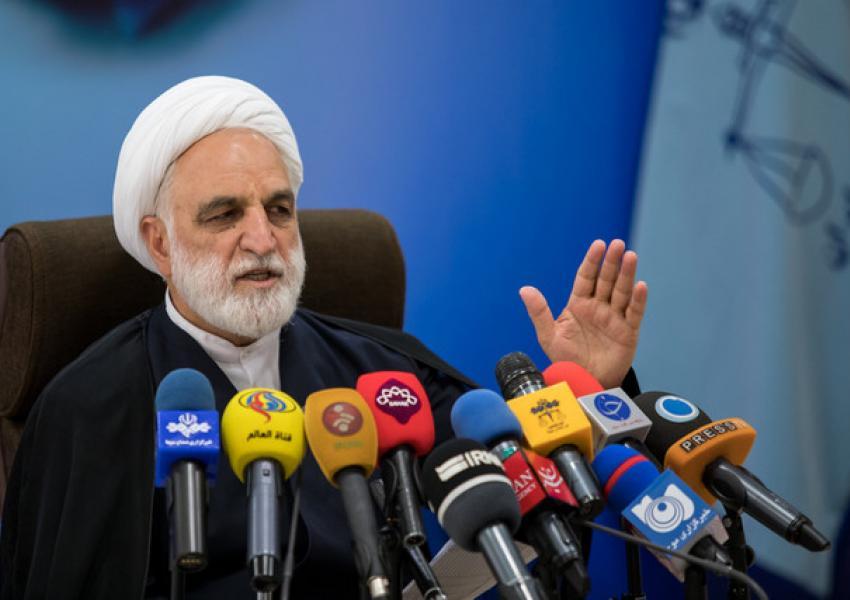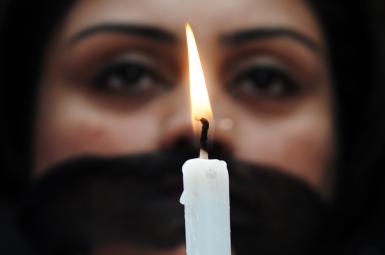
Iran Leader Appoints Notorious Judge As Chief Justice
Gholam-Hossein Mohseni-Ejei, currently deputy chief justice, has been appointed to succeed Ebrahim Raisi (Raeesi) as Iran’s chief justice, with Raisi preparing to take office as president in August after his victory in the June 18 election. Supreme Leader Ali Khamenei wrote in a decree published on his website that he had chosen Mohseni-Ejei based on his "legal qualifications, precious experiences, deep knowledge and brilliant record as a judge."
Raisi had written to Khamenei – his letter was published by the judiciary Wednesday – requesting a successor to be appointed to allow him to prepare for the transition in administration.
Mohseni-Ejei, 64, was sanctioned by the United States Department of Treasury in 2020 under a 2010 executive order and by the European Union in 2011 for his role as intelligence minister in the crushing of protests after Iran’s disputed 2009 election.
Appointed intelligence minister by President Mahmoud Ahmadinejad in 2005, Mohseni-Ejei was dismissed by Ahmadinejad in July 2009 but was appointed attorney-general (2009-2014) by Chief Justice Sadegh Amoli-Larijani, and in August 2014 was made first vice-chief justice. From 2010 to 2019 he was also spokesman of the judiciary.
Mohseni-Ejei's name has been linked to several high-profile trials, prosecutions, and alleged forced confessions. In 1987 he was interrogator of Mehdi Hashemi, a relative of Hossein-Ali Montazeri and a radical cleric opposed to Iran’s secret ‘Iran-Contra’ dealings with the US, who was executed after conviction by the Special Court for Clergy for ‘terrorism’ and 'espionage'. Montazeri’s pleas to Supreme Leader Ruhollah Khomeini to commute Hashemi’s death sentence paved the way for Montazeri's removal as Khomeini's designated successor.
Mohseni-Ejei made headlines in 1997 during the corruption trial of Tehran mayor Gholam-Hossein Karbaschi, when live broadcasts of proceedings by the state broadcaster, including his arguments with Judge Mohseni-Ejei, attracted millions of viewers. Karbaschi’s two-year sentence was later commuted by Khamenei. The trial was widely seen as a politically motivated move against the reformist President Mohammad Khatami's government.
As prosecutor of the Special Court for Clergy (1998-2005), Mohseni-Ejei in 1999 ordered several high-profile reformist clerics – including Mohammad Khatami's interior minister Abdollah Nouri and academics Mohsen Kadivar and Hassan Yousefi-Ashkevari − defrocked and imprisoned.
The newly appointed Chief Justice has also been accused of directly ordering the killing of dissident Pirouz Davani in 1998 during a spate of assassinations and attempted murders of intellectuals and writers by intelligence ministry agents.



